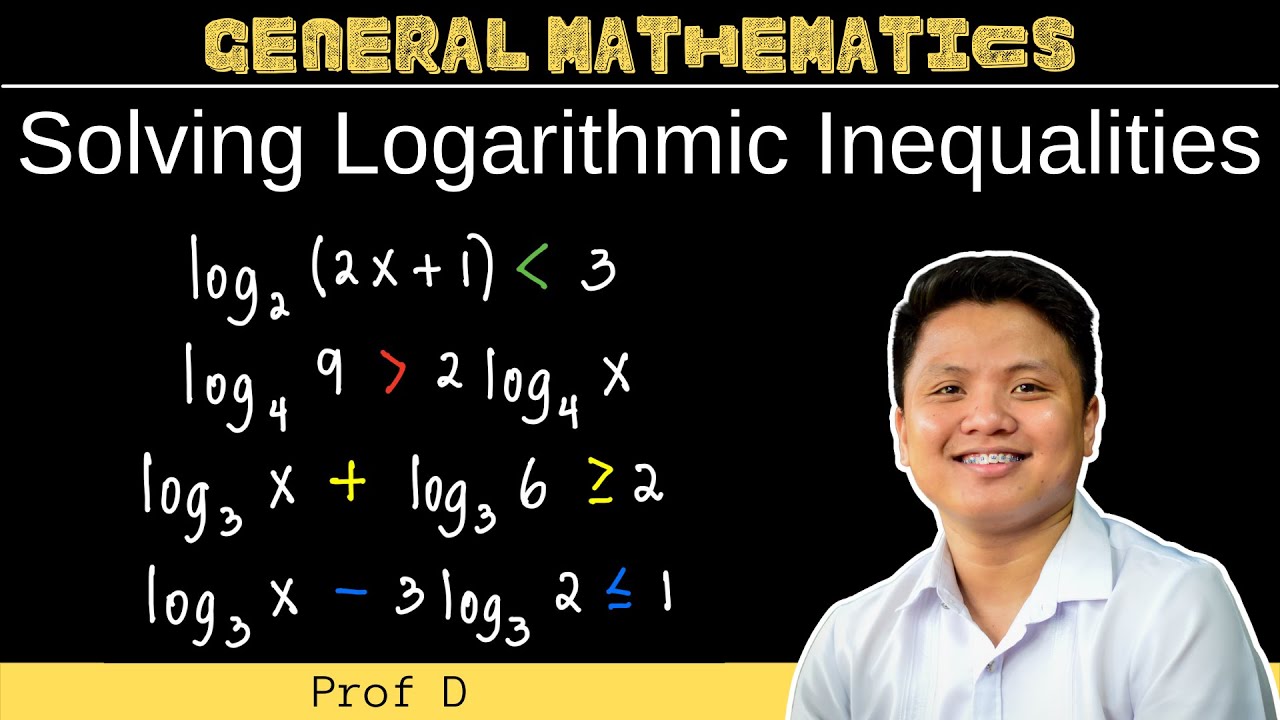Exponential Functions, Equations & Inequalities
Summary
TLDRThis lesson focuses on defining and distinguishing key concepts related to exponential expressions, functions, equations, and inequalities. Students learn that an exponential expression is a mathematical form with a constant base raised to a variable exponent. The lesson further explores exponential functions that illustrate the relationship between independent and dependent variables, as well as equations and inequalities that incorporate these expressions. Through examples and assessments, learners develop a clear understanding of how to identify and differentiate between these mathematical concepts, paving the way for deeper exploration of exponential relationships in various contexts.
Takeaways
- 😀 An exponential expression has the form a * b^x - c + d, where a, b, c, and d are constants, with b > 0 and b ≠ 1.
- 😀 The base of an exponential expression must be a constant, while the exponent must contain a variable.
- 😀 'e' is a mathematical constant approximately equal to 2.71828, similar to the constant pi (π).
- 😀 An exponential function is a function that includes an exponential expression, shown as f(x) = b^x where b > 0 and b ≠ 1.
- 😀 To identify an exponential function, it must have a variable exponent, a constant base, and an equal sign.
- 😀 An exponential equation involves exponential expressions on one or both sides of an equation, containing a variable exponent.
- 😀 In exponential equations, it is essential that at least one side is an exponential expression with an equal sign present.
- 😀 An exponential inequality involves exponential expressions with at least one side containing a variable exponent and uses inequality symbols.
- 😀 When evaluating given examples, check if they meet the criteria for exponential expressions, functions, equations, or inequalities.
- 😀 Understanding the differences between exponential expressions, functions, equations, and inequalities is crucial for solving related problems.
Q & A
What is an exponential expression?
-An exponential expression is an expression of the form a × b^(x - c) + d, where a, b, c, and d are constants, with b > 0 and b ≠ 1, and it involves a constant raised to a variable exponent.
What are the key components of an exponential function?
-An exponential function is of the form f(x) = b^x, where b > 0 and b ≠ 1. It shows the relationship between the independent variable x and the dependent variable y (or f(x)).
How can you identify an exponential equation?
-An exponential equation is identified as an equation involving exponential expressions, where one or both sides contain a variable exponent and includes an equal sign.
What distinguishes an exponential inequality from other forms?
-An exponential inequality is an inequality involving exponential expressions, characterized by the presence of an inequality symbol (like <, >, ≤, or ≥) and one or both sides having a variable exponent.
Can you provide an example of an exponential function?
-An example of an exponential function is f(x) = 3^x, where the base 3 is a constant and x is the variable exponent.
What is the significance of the base in exponential expressions?
-The base in exponential expressions must be a constant greater than zero and not equal to one, as it determines the growth or decay behavior of the function.
What happens if the base is equal to 1 in an exponential expression?
-If the base is equal to 1, the expression does not qualify as an exponential expression since it results in a constant value regardless of the exponent.
How do you determine if a mathematical statement is not an exponential expression?
-A statement is not an exponential expression if it lacks a variable exponent or if the base is a variable rather than a constant.
What role does the variable exponent play in exponential equations?
-The variable exponent in exponential equations allows for the representation of changing values, which is essential for solving equations and understanding exponential growth or decay.
How can you check your understanding of exponential functions and equations?
-You can check your understanding by identifying examples of exponential expressions, functions, equations, and inequalities, and ensuring you recognize their defining characteristics and differences.
Outlines

Cette section est réservée aux utilisateurs payants. Améliorez votre compte pour accéder à cette section.
Améliorer maintenantMindmap

Cette section est réservée aux utilisateurs payants. Améliorez votre compte pour accéder à cette section.
Améliorer maintenantKeywords

Cette section est réservée aux utilisateurs payants. Améliorez votre compte pour accéder à cette section.
Améliorer maintenantHighlights

Cette section est réservée aux utilisateurs payants. Améliorez votre compte pour accéder à cette section.
Améliorer maintenantTranscripts

Cette section est réservée aux utilisateurs payants. Améliorez votre compte pour accéder à cette section.
Améliorer maintenantVoir Plus de Vidéos Connexes
5.0 / 5 (0 votes)






